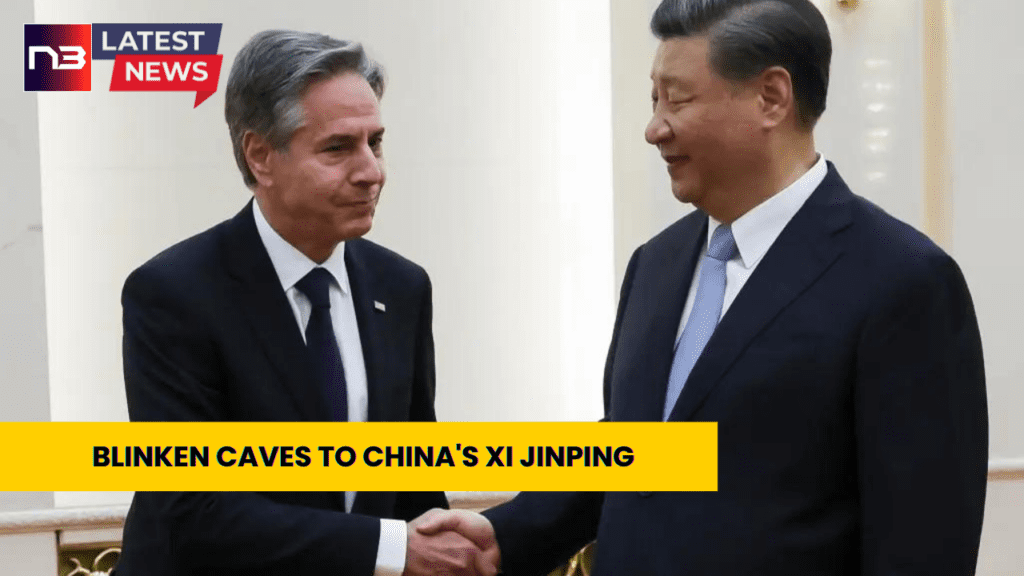US Secretary of State Antony Blinken’s recent statement on Taiwan has sparked outrage among the conservative community in Congress. During a meeting with Chinese officials, including President Xi Jinping, Blinken stated that the US does not support Taiwan’s independence, a move that many have viewed as appeasing America’s greatest adversary. Conservatives have sounded the alarm over the danger of such a weak display on the world stage, which could give China a green light to increase its intimidation of Taiwan, a self-governed democratic island that Beijing would like to reunite with China.
Secretary of State Blinken: “We do not support Taiwan independence.”
— Congressman Ben Cline (@RepBenCline) June 19, 2023
The Biden admin is giving China a green light to increase its intimidation of our ally, Taiwan.
This is a dangerous display of weakness towards our adversaries on the world stage.
pic.twitter.com/RaMisS9ukT
The Taiwan issue is one of the most contentious in the US-China relationship. Xi has made it his number one priority to reunite Taiwan with China, even though the island, which is located about 100 miles off China’s southeastern coast, has never actually been part of it. The US adheres to a One China policy, which does not take a formal position on the status of Taiwan’s sovereignty. Washington’s One China policy, which has been critical for maintaining peace in East Asia since it took effect in the late 1970s, acknowledges Beijing’s opinion that Taiwan is its sovereign territory, but implicitly acknowledges that Taiwan’s status is unsettled. Successive presidential administrations have held that the US favors no change to the status quo of relations between China and Taiwan.
Blinken flew to Communist China to appease Xi Jinping and state the Biden administration does not support Taiwan’s independence.
— Sen. Marsha Blackburn (@MarshaBlackburn) June 19, 2023
Why won't this administration stand up to bullies and stand for freedom?
However, unlike the US’ One China policy, Beijing adheres to its One China principle. The Chinese principle holds that there is only one nation of China, and Taiwan is part of it. Beijing believes in one country, two systems, meaning that Taiwan and other China-claimed self-governed areas may have a separate system of government, but are still part of China. China regularly claims the US has violated the One China principle. While it may seem like an idiosyncrasy, the Chinese principle takes a firm position on the island’s status, unlike the US’ policy.
Conservatives have raised concerns over Blinken’s visit to China, citing it as an attempt to appease Xi Jinping. They worry that the US will give China the green light to find new ways to intimidate Taiwan if officials continue to make such weak statements on the world stage. They also accuse Blinken of displaying weakness towards our adversaries on the world stage, highlighting the Biden administration’s overall policy of outright appeasement towards China.
Therefore, it is essential for the US to remain opposed to any unilateral changes to the status quo by either side and to continue to maintain its responsibility under the Taiwan Relations Act, including ensuring that Taiwan has the ability to defend itself. Congress is pushing the Pentagon to prioritize sending Taiwan military aid ahead of any potential conflict. The Pentagon is working to supply Taiwan with weapons, using part of the $1 billion lawmakers earmarked last year to be spent on defense systems for Taipei’s military, a move welcomed by conservatives who believe in a strong national defense to protect US interests in the region.


